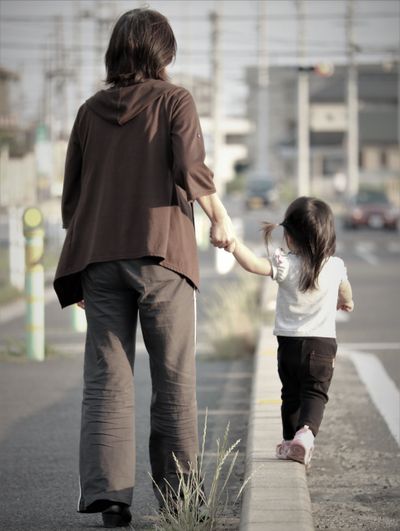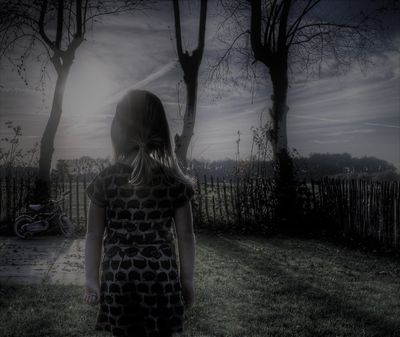What is depression?
Simply put, it is a mood disorder, and it sucks. Just using the phrase “I’m depressed” is not always the accurate thing to say. It is more than just the mood of the day. It is a long-term clinical condition that is not always fixable, or at least it is not easy to manage. Figuring out depression is not easy. Everyone’s depression can be very different from one another. True depression is not just sadness or even grief. It is an overwhelming and all-enveloping pit of despair, a mix of emotions that cause an extraordinary and sometimes unexplainable mental anguish. It can be some of the worst pain a person can feel because that mental pain can sometimes create physical pain.
This is not a debate over what is real depression because everyone can have that feeling sometimes but there is also knowing when to get help.
This is something I mention because I was diagnosed quite young and did not believe my own diagnosis for almost a full decade. It was a long journey to accept my condition and learn how to help myself.
What can cause depression?
While acceptance of depression as an illness and the stigma of having that diagnosis has lessened somewhat, there is still a debate on what actually causes clinical depression. There is a constant debate about nature versus nurture. Studies into depression will look into one or the other, but not always both.
There are four main factors listed by the Mood Disorders Society of Canada that are believed to be the cause of depression, though it should be said that it is not always accurate for each individual.
Family History: While still highly debated, genetics do play a huge role in the susceptibility to having depression at some point.
Recent Events: A divorce, the death of a loved one, job loss, chronic illness, and life changes such as retirement or attending a new school. These events cause stress and conflict which adds to the possibility of long-term depression.
Past History: Experiences of childhood abuse including sexual, physical, or emotional trauma, extreme neglect or abandonment. Also, the experiences of trauma in recent or past adulthood such as domestic abuse, living with a family member or personal drug or alcohol abuse, rape, robbery, war, kidnapping, or witnessing violence can lead to PTSD or adds to depression.
Thoughts and Behavior: Our thoughts influence our emotions and mental state, so developing a constant thought thread of “bad things happen to me all the time” can result in leading to depression as well. The statement “it’s all in your head” while annoying to hear is actually accurate as it can lead to legitimate depression or make existing depression even worse.
All these factors; genetics, difficult life events, personality, negative thoughts, low mood, and unhealthy behaviours can interact with one another, leading to the downward spiral that is called depression.
When I was diagnosed with clinical depression, I was only eleven. I had not even started puberty yet, but I was extremely moody. I am told that when I got angry it was always over the top and over the smallest of things, like being told something more than once. I would just get very angry quickly, then I would cry. It was annoying for me, and I would take it out on others. I did not understand why I got the diagnosis so young, but later on, I came to understand that along with physical health issues, depression was something intergenerational in my family. The doctor likely diagnosed me based on my family history.
What are the symptoms of depression?
There can be a lot of symptoms that are part of depression, but on their own may not mean clinical depression. Sometimes the symptoms can mean something else entirely. For example, Fatigue is a common symptom of depression, but it is also a symptom of Lupus, Fibromyalgia, most forms of Cancer, the Flu and so many other illnesses.
There is no x-ray or blood test for depression. Instead, you, your family, and your friends will notice that your mood, behaviour, functioning, attitudes, and thoughts have changed. Many of the symptoms of depression are a case of too much or too little.
Such behaviours could be:
- Be sleeping little or sleeping too much.
- Have gained or lost a significant amount of weight.
- Be highly anxious and agitated or sluggish and inert.
- Have unexplained aches and pains.
- Be extremely sad or very bad-tempered or both.
- A loss of interest in the pleasures of life, as well as work, family, and friends.
- Unable to concentrate and make decisions.
- Negative, anxious, trapped, unable to act.
- Despairing, guilty, and unworthy.
- Fatigue and an overall loss of energy.
- Suicidal – expressing thoughts and sometimes, making plans.
- Numb – an awful feeling of emptiness.
- Unexplained and ongoing aches and pains.
A formal diagnosis of depression is warranted when a person has been experiencing at least five of these symptoms for a period of two weeks or more. Practically speaking, however, people do continue to resist going for help either to close family/friends or a mental health professional, feeling they can ride it out. While this can be true for the mildest forms of depression, major depression requires medical help in the form of diagnosis and treatment.
I certainly felt a lot of these symptoms, but more as I got older, became a teenager, and later an adult. I do not believe that I had these, or at least most of these symptoms at only eleven. Perhaps I only had minor symptoms at that age, but my memory is rather fuzzy from that time, I think due to the medication I was placed on. It did not work for me, but I also did not take it seriously. My symptoms got worse and worse as the years went by. I pretended to take medications and just said they did not work, or that they made me feel funny when it was the depression getting worse. It was only once my great-grandmother died while I was away for my first semester a university that I realized how bad my depression had gotten. The loss affected me enough that I dropped out of school for a time and drank. I came to realize that I did not want that to be my life, so I found a new doctor, and new medication, got counselling and returned to school. I was finally taking my mental health seriously.
How is depression treated?
Most people, once they acknowledge that they need help, turn to their family physician. In fact, the majority of treatment for depression in Canada is provided by family physicians. As there is no lab test for depression, the family physician relies on your description of symptoms in order to make a diagnosis. Depression is often described as a “chemical imbalance” in the brain.
The most common treatment for depression involves medication designed to increase the levels of these neurotransmitters and thus, improve your mood. There is some evidence that people with mild depression can try other interventions first (such as psychotherapy and lifestyle changes). However, severe depression requires medication (in combination with other treatments) to achieve recovery.
There are various forms of counselling and therapy that have been known to help some cases of depression with and without combined medication.
Interpersonal where you and your therapist explore your past hurts, present relationships, and future goals and look at ways you can develop a more healthful life.
Marital or Family Therapy involves you and those close to you in joint sessions, where you examine how you can relate to one another in more healthful ways.
Group Therapy brings people together who share a particular problem so they can examine together some of the common ways they have acted – or choices that they have made – that have led to difficulties in their lives. Group members also share tips and coping strategies for more healthy living.
For myself, a combination of medication, psychotherapy, and counselling seems to have helped. While I still get my lows, I am able to manage them for the most part because of the help I sought out. I have also found talking to others who have gone through a similar experience like my mother and grandmother helps a great deal. It helps me to realize that I am not alone, and it can get better.
How can someone help themselves or others if they have depression?
Though unlike myself, others may not find comfort in being among other people who have been through something similar. Sometimes people need a different perspective.
If you are close to a person with depression, talk to them. They may resist the help and sometimes lash out with mood swings but persistence can pay off. The basicness of self-help is a feeling of safety, that you are among people who understand, so you can speak your mind without fear of judgment. No one is an “expert”, and you are not alone in your struggle. Everyone has something to give, and all members participate in both giving and receiving support. Numerous helpful guides and workbooks exist. They focus on what you can do to manage your own symptoms and prevent relapse. Taking charge of your own health is key to recovery.
Families and caregivers who have lived through the depression of a loved one have developed ideas about what does and does not work for them. Here are their suggestions:
Educate Yourself: Families and friends need to know all about depression too, its symptoms, and treatments. It is common to feel depressed when researching depression (I know I did, and I have a diagnosis of depression already) but it is for a good cause of helping someone you care about.
This Is an Illness: People with depression can not just get over it. It is not a cold and cannot be just treated and done with, it is a long-term illness that needs to be treated differently for each person that has it.
Go Ahead and Deal with the Practical: People with depression are not capable (at the time) of dealing with complicated plans or long conversations. Families and friends want to involve their depressed loved ones in decisions, but that may not be possible. It is a difficult calculation for families – to judge between taking too much control and taking not enough.
Avoid Trying to Reason People Out of Their Negative Feelings and Beliefs: People in the depths of depression do not respond to reason. However, if the person is expressing ideas about harming themselves, they must know that family or friends will intervene by taking them to a physician or the emergency department. In extreme situations, it may be necessary to call 911, or your local emergency line if danger to the person is immediate.
Take Care of Yourself: Families and friends suffer too. They need their own circle of support and possible treatment for their mental health. There are self-help groups, especially for families and friends, where they can get advice, receive support from others who are going through what they are, and exchange tips on coping mechanisms.
For those with depression, it can be a number of things that help. For me, it was the knowledge that my family cared about me and that my depression hurt them too. I could not just get rid of the horrible stuff I was feeling but I could empathize with how they felt. It can be the big or little things that keep you going while going through a major depressive low.
Just remember, that while depression is a horrible thing, and can feel endless, there are ways to get help and that you are just as valid as everyone else.
No matter where you are from, you can call a crisis line
It can be for anything, sometimes to deal with the worst side of depression, and suicidal thoughts, and sometimes just to talk.
Canada
The new Canada Suicide Prevention Service (CSPS) by Crisis Services Canada, enables callers anywhere in Canada to access crisis support by phone, in French or English: toll-free 1-833-456-4566 Available 24/7
- KidsHelpPhone Ages 20 Years and Under in Canada 1-800-668-6868
- First Nations and Inuit Hope for Wellness 24/7 Help Line 1-855-242-3310
- Canadian Indian Residential Schools Crisis Line 1-866-925-4419
- Trans LifeLine – All Ages 1-877-330-6366
- Alberta Crisis Line – All Ages 403-266-4357
- British Columbia Crisis Line – All Ages 1-800-SUICIDE
- British Columbia Mental Health Support 310-6789
- BC211 – Referral Hotline 24/7 Dial 211
- Manitoba Crisis Line – All Ages 1-877-435-7170
- New Brunswick Crisis Line – All Ages 1-800-667-5005
- Newfoundland and Labrador Line All Ages 1-888-737-4668
- NWT All Ages 24/7 1-800-661-0844
- Nova Scotia Crisis Line – All Ages 1-888-429-8167
- Nunavut Line – All Ages 7 pm-11 pm (EST) 1-800-265-3333
- Ontario Crisis Line – All Ages 1-866-531-2600
- Ontario College and University Students 1-866-925-5454
- Ontario York and Simcoe Support Services Network 1-855-310-COPE (2673)
- Ontario – Kenora, Dryden, Fort Frances, Rainy River and everywhere in between 1-866-888-8988
- Prince Edward Island Crisis Line – All Ages 1-800-218-2885
- Quebec National Crisis Line – All Ages 1-866-277-3553
- Saskatchewan Crisis Line – All Ages 1-306-525-5333
- Yukon Crisis Line – All Ages 7 pm-12 am (PST) 1-844-533-3030
United States
- Trans LifeLine – U.S.A. 1-877-565-8860
- The Trevor Project Lifeline 866-488-7386
- U.S. National Suicide Prevention LifeLine 1-800-273-TALK
- Military Veterans Canada and U.S.A. 1-800-273-8255 Press 2 for Spanish
China
- Beijing – Befrienders 03-5286-9090
- Hong Kong – The Samaritans 2896-0000
- Shanghai – Life Line 021-6279-8990
England
- The Samaritans – 116123
France
- National crisis line – 01-45-39-40-00
India
- SNEHA A Link With Life 91-44-2464-0050
Ireland
- 1life 1-800-247-100 or text the word HELP to 51444
- The Samaritans 18-50-60-90-90
Japan
- Befrienders Osaka 81-066-260-4343
- Children & Families 03-4550-1146
- Counseling Center 03-4550-1146
- Life Line Tokyo 03-5774-0992
Netherlands
- National crisis line 0900-1450
New Zealand
- LifeLine NZ 09-5222-999 within Auckland
- LifeLine NZ 0800-543-354 outside Auckland
Northern Ireland
- Childline 0800-1111
- Contact Youth (counselling for young People) 028-90457848
- Samaritans: 1-850-60-90-90 (National number charged at local call rates
- Young Persons Advice line: 0808-808 5678
- Youthline: 0808-808 8000
- Zest for the prevention of suicide Londonderry – 028-71266999
Scotland
- Age Scotland: 0845-125-9732
- Breathing Space Scotland: 0800-83-85-87 – particularly for young men who may be feeling suicidal
- Edinburgh Crisis Centre: 0808-801-0414
- Interactions Counseling & Support Services: 01592-262869
- Lothian LGBT Helpline: 0131-556-4049
- NHS 24 HR Helpline: 08454-24-24-24
- NHS INFORM Scotland Helpline: 0800-22-44-88
- The Samaritans: 116123
Sri Lanka
- Bandarawela: 0572222662
- Kandy: 081-2234806
- Katunayake: 011311020
- Kohuwela 5780153
- Kurunegala 0374931731
- Lunugamvehera 0475781200
- Matale 0662223521
- Mawanelle 035-5788330
- Panadura 038-2235291
- Panduwasnuwara 0372291718
- Panduwasnuwera 0375715815
- Sumithrayo – Colombo 2692909 / 2696666 / 2683555
United Kingdom
- CHILDLINE 0800-1111
- Family Line 0808-800-5678
- Papyrus Hopeline 0870-1704000
- The Samaritans 116123






